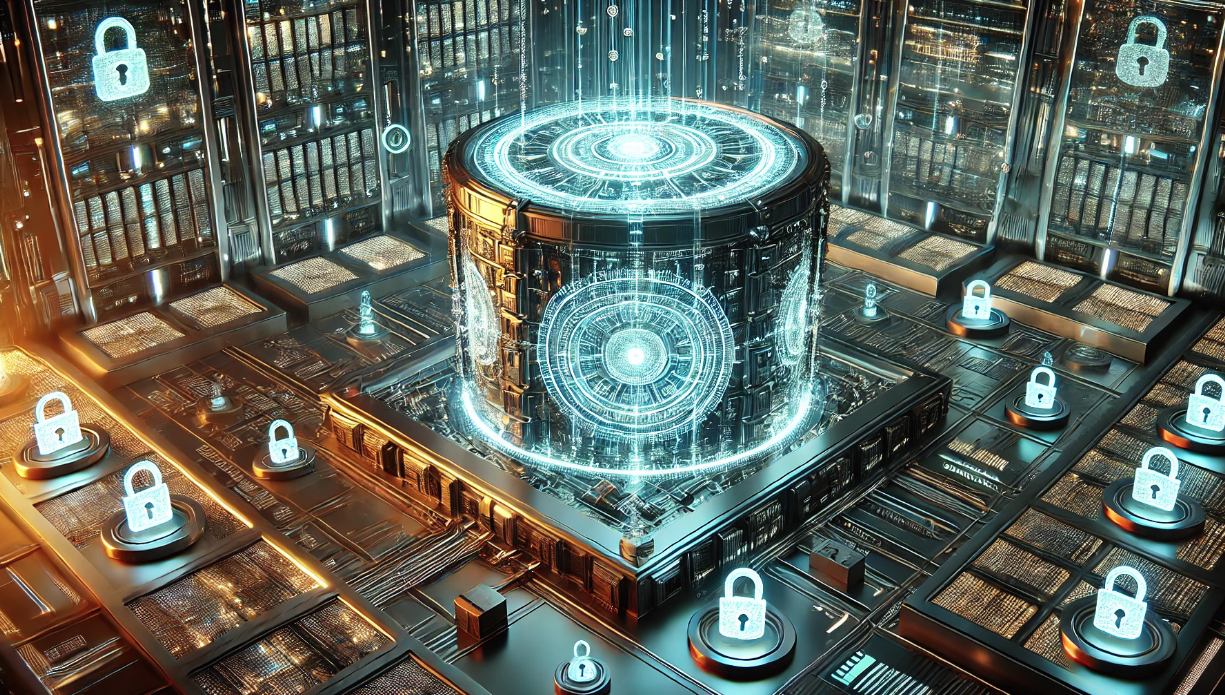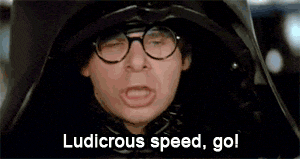
Recently I have heard someone explaining bitcoin in a very different manner than I have seen so far. The concepts and details were all familiar. However the perspective presented was a unique one and made me ponder upon and examine significance of bitcoin in our world from a new angle. I discovered two new interesting descriptions attributed to bitcoin, and bitcoin alone. One was that bitcoin represents absolute digital scarcity, and another was had to do with the three forms bitcoin exists in all at the same time: store of value, medium exchange, and unit of accounting. I will not discuss the latter in the post, but touch on it briefly. The absolute digital scarcity is what really caught my attention.
It is common knowledge that water has three forms: solid, liquid, and gas. It is rare we see water in all three forms at the same time. Apparently, water can exist in all three forms at the same time under special condition called triple point. The triple point of water occurs at 0.01°C (32.018°F) and 0.006 atmospheres of pressure. At this exact temperature and pressure, ice, liquid water, and water vapor coexist in perfect balance. Scientists use this concept in thermodynamics and to define the Kelvin temperature scale. In nature, we might see something similar in places like glaciers, where ice, melting water, and mist or fog are present together. Super interesting, what does it have to do with bitcoin?
If we examine historical importance of money in our societies, we see three main functions or forms of money: money as store of value, money as medium of exchange, and money as unit of accounting. All very important in how trade and finance evolved over time. It is rare to see all three functions designated to one type of money. Certain assets like gold demonstrated to be better as store of value, currencies or notes were better as medium of exchange, certain ledgers excelled in developing unit of accounting. We haven't really seen anything that could be best at all three, and perform these functions with ease and all at the same time. This is interesting topic to explore. It may seem simple and everything we have already heard. But to me there is a lot more to it if we go deeper into how this phenomena may reconstruct our future.
Back to scarcity. Scarcity is simple. The more limited something is, if it has desired utility or solutions, the higher the value. In supply and demand, if our supply is low and demand is high obviously we see increase in value. I know these are basics, and we hear this all the time. However, have we considered absolute scarcity? I may be going a little bit philosophical here, but that it the point. The idea is worth exploring. Let's do a thought experiment. Can we really comprehend infinity? What is infinity? It is something that never ends, goes on forever, without limits and boundaries. We can understand the concept, we cannot really fully comprehend it. It just ends up being something really really big, large, long, etc. How are we supposed to imagine an endless road, or bottomless pit, or never ending story? In fact, if the thought process about infinity is started, it never ends, until we are bored or our head starts hurting. But it is real, isn't it? Mathematicians says so. Or perhaps it only exists in math, and not in the natural world.
When thinking about absolute scarcity, I have experienced the same thing as trying to understand infinity. It is simpler concept. One of the examples for absolute scarcity can be land. Yes, land is limited to the land mass of the Earth. But it is still abundant for humans. Sure, we may have limited land in Manhattan or some geographical area with high demand for real estate, but we still have so much land that is not used at all. Cities like Manhattan can be copied if we have enough time, desire, and resources. There are many towns in China that copy European towns. These are tourist attractions, and serve different purpose and not same as the original cities. But the point is, regardless how scarce land is, there is still a lot of it on Earth. Anything that we can think of as scarce and has important value for humans, is still in abundance for all humans. Gold is considered as one of the scarce metals. But we still have a lot of it, if we have time, resources and desire to mine more. Do we really have absolute scarcity? It is not easy to answer. However the answer is clear and easy when it comes to bitcoin.
Absolute scarcity means something is completely limited in supply and cannot be increased, no matter what. Unlike things that are just rare but can still be found or made, absolutely scarce things have a fixed amount forever. That is why bitcoin is a perfect example of absolute scarcity. Not only bitcoin represent absolute scarcity for the first time, it represents absolute digital scarcity. We can see scarcity in physical world. But there is no such thing as scarcity in the digital world. Cyber space has been growing exponentially. There is abundance in this space. Copy and Paste are probably the most used functions in digital devices. All digital creations can be copied unlimited amounts of time, retaining the same qualities of the original, only limited to the physical memories. Even when it comes to money, central banks can create as much money as they like but adding digits. Everything is in abundance in cyber space, and every second there is more and more of the same things that already exist, and new ones that keep getting added. Nothing really claim absolute scarcity in digital space, except bitcoin.
One of the main arguments critics make is that bitcoin is digital and just like anything digital unlimited amounts of it can be created. When 21 million limit is explained, the next argument is "well, bitcoin can be copied many many times". Then another argument is there will be something better than bitcoin, because everything digital keeps getting updates and improvements, or new technologies emerge. Considering how digital world works, these are valid points and maybe that is why bitcoin is not easily understood. But once bitcoin is understood, bitcoin being a best representation of absolute digital scarcity becomes very obvious.
We already know it is very difficult for anything to become scarce in digital space, let alone to become so scarce that it cannot be increased no matter what. Anything that can accomplish this, can get the award for absolute digital scarcity. Once we accept that, we can clearly see the winner.
What makes bitcoin revolutionary is the mathematical solution to the problem of money. How it introduces a network for transferring value among participants without a need for trust, removing middlemen, and doing so in a fast, cheap, and transparent manner. While initially bitcoin didn't have any value at the start of the network, those who participated in the network chose to put in capital from physical world into the digital one. This process is on going and more capital flows into the network the higher will be the value for each coin. The true value is in the network that operates in a decentralized manner. It came at the right time, when all conditions were present for the beginning of the transformation of the money as we know it. The key is in network's protocol. Not only it had all the mathematical solutions, the protocol was set to limit the total possible coins to 21 million. This has always been a feature, and among the things that attracted more people and entities to join the network.
Speaking of the protocol, I believe PoW consensus was the genius idea of them all. Now we have PoS, DPoS, PoB, and other consensus mechanisms for blockchain technologies. But for the bitcoin, for the first decentralized blockchain network that was set to fix the money, PoW was the best choice. PoW connected the physical world with the digital one, and allowed initial participants to transfer real value in the form of energy into the network. Energy is a universal value for humanity with high demand everywhere. It also has scarcity built into it. While it doesn't represent absolute scarcity, it scarce enough to be among the top valuable assets. It is clear for those who understand how bitcoin mining works, bitcoin is not created out of thin air, but produced by flowing energy into the network of decentralized computations. In simplest terms, participants have skin in the game, and not a single one is in charge.
Once the system is up and running and powered with real world energy, the fascinating features of value transfer attracts capital from everywhere. So, why not bitcoin copies? It is up-to the capital to decide where to go, and usually capital tends to find the most efficient systems. True money wants to always increase in value. The money flows into bitcoin because of the immutable protocol, because of the network, because everything that bitcoin offers. Simply having a copy of it will not attract capital. We have seen many copies of bitcoin: litecoin, bitcoin cash, bitcoin sv, and others. We have seen many different blockchains with different protocols like ethereum, hive, cardano, solana, etc. In some cases blockchains are forks or copies, in other cases new types of blockchains inspired by bitcoin but with the goal of fixing something other than money. There are many cool innovations in blockchain technologies, and blockchains like Ethereum, Hive, Solana play important role. However, they are not the network of money and they don't claim to be.
Bitcoin is unique, and nothing that came after it can take its place. Bitcoin has an important mission, transforming the money to something much better. As this process unfolds, other solutions that are fixing different aspects of human lives will prosper as well. Even copies have place. But it is not their place to fix the money. At risk of sounding like a bitcoin maximalist, I would like make this statement. Bitcoin and rest of crypto are different. No other solution can fix the money as bitcoin can. However, what Ethereum is solving can be solved by other networks like Cardano, Solana, Near, etc. So, there can be better technologies in the future that may replace current blockchains. Even Hive can be replaced. Hive has positioned well as a solution for a better web. But if it doesn't deliver, and another decentralized network emerges that can fix the web better, Hive may have a competition.
That is not the case for bitcoin. Nothing will be able to take away from bitcoin its first and original status. We will need to go back in time to make that happen. Moreover, bitcoin has reached the escape velocity, there is no turning back and there is no catching up at this point. It will continue accumulating value. With only 21 million coins ever being mined in bitcoin network, it makes it the true representation of Absolute Digital Scarcity. This means regardless how impossible things may seem now, it is inevitable that one day all of global finance will work on bitcoin standard.





